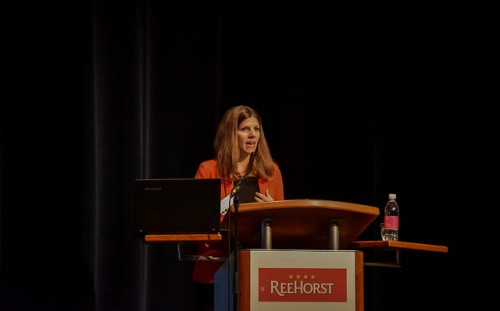Over a hunderd experts talked about investments for improved land governance and livelihoods at a seminar that was jointly organized by FMO, Hivos, KIT and Tropenbos International.
Smallholders; they may be small in size, but they are large in numbers. More than three quarters of the world’s food is produced by smallholder farmers. Smallholders often have no formal title to their land, while their livelihoods largely depend on the resources given by the land, in terms of food and nutrition security, energy supply, income and employment. On top of this smallholders have limited access to finance. This is where the investment case comes in.
The main challenge is that often smallholders do not have formal land titles and their rights to access, control and use of land are often insecure, unclear or not respected. This is caused by overlapping or conflicting (customary and formal) tenure regimes as well as illegal and/or illegitimate occupation. Procedures and standards designed to protect smallholders are not always implemented, which can lead to loss of land, violations of human rights and/or loss of livelihood security. From an investment perspective, loss of livelihood security also creates credit and reputational risk. Thus, there is an aligned interest between smallholders and investors.
In this context, FMO, Hivos, KIT and Tropenbos International have explored investments in business models that are focused on creating positive impacts on smallholder livelihoods. We have been in dialogue for over two years, looking into investments that are community-driven or work closely with communities and investments that connect small-scale farmers and large scale actors in the agricultural sector. Together, we have analysed and discussed how investors can help and benefit from formalising land titles of smallholders in some cases and how sometimes working with existing traditional (informal) systems seems more beneficial, in case that they already guarantee community land use rights.
We summarised our findings in the working paper. The working paper draws from international standards[1], principles and case studies, and provides key pointers for investors to work profitably and effectively together with smallholders and local communities. With this, we aim to illustrate the role for private investment in scaling up viable business models that positively impact on local livelihoods, land security and entrepreneurial opportunities of smallholders and communities. We also present several case studies, to indicate that it is possible.
Often investors perceive working with smallholders as a challenge. But during the seminar several cases were cited where involving smallholders and local communities provided an opportunity. It does require, however, a shift in skills and mind-set by investors. Or as Emilie Goodall, manager development impact and sustainability at FMO, stated in her presentation: “Impact investments require thinking, acting and partnering beyond business as usual.
Fore more information

[1] Including the UN’s Guiding Principles on Business and Human Rights, the OECD Guidelines for Multinational Enterprises, the IFC Performance Standards, and the Voluntary Guidelines on Responsible Governance of Tenure of Land, Fisheries and Forests (VGGT)


